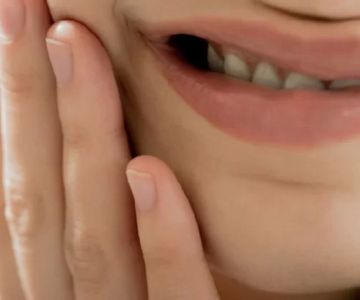Does Lyme Disease Cause Oral Thrush? Understanding the Connection
Lyme disease is a bacterial infection caused by the bacterium Borrelia burgdorferi, typically transmitted to humans through the bite of an infected black-legged tick. It’s well known for its characteristic rash, fever, and fatigue, but many people wonder if Lyme disease can have other, less obvious effects on the body. One such concern is the potential link between Lyme disease and oral thrush—a fungal infection caused by an overgrowth of Candida yeast in the mouth.
1. What is Lyme Disease?
Before diving into whether Lyme disease can cause oral thrush, it's essential to understand what Lyme disease is and how it impacts the body. Lyme disease is primarily characterized by symptoms such as:
- A bullseye-shaped rash (erythema migrans) at the site of the tick bite
- Fever and chills
- Fatigue
- Joint pain and swelling
- Headaches and neurological problems in severe cases
If untreated, Lyme disease can lead to more severe symptoms, including chronic joint pain, heart palpitations, and neurological issues. The infection affects the body’s immune system, which plays a role in understanding how Lyme disease might lead to other complications like oral thrush.
2. What is Oral Thrush?
Oral thrush, also known as oropharyngeal candidiasis, is a fungal infection in the mouth caused by the overgrowth of the Candida fungus. In healthy individuals, Candida is a normal part of the mouth's microbiome. However, under certain conditions, such as a weakened immune system, Candida can proliferate, leading to symptoms like:
- White patches on the tongue, inner cheeks, and roof of the mouth
- Soreness or redness in the mouth
- A dry mouth or difficulty swallowing
- Cracked corners of the mouth
Oral thrush is often a sign that the immune system is compromised, and its occurrence can be linked to several factors such as antibiotic use, diabetes, or other conditions that affect immune function.
3. The Link Between Lyme Disease and Oral Thrush
Now, the question arises: Does Lyme disease cause oral thrush? The short answer is that Lyme disease itself does not directly cause oral thrush. However, Lyme disease can weaken the immune system, which may increase the risk of developing infections like oral thrush. Here's how:
- Immune System Suppression: Lyme disease can trigger inflammation in the body, which may compromise immune function over time. A weakened immune system makes it easier for fungal infections like Candida to thrive in areas such as the mouth.
- Antibiotics and Oral Thrush: A common treatment for Lyme disease involves antibiotics, which are used to kill the bacteria causing the infection. While antibiotics can be effective in treating Lyme disease, they can also disrupt the natural balance of bacteria in the body, including those in the mouth. This disruption can allow Candida to overgrow, leading to oral thrush.
- Chronic Inflammation: Lyme disease may lead to chronic inflammation, which can further suppress the immune system’s ability to fight off infections, including fungal infections like oral thrush.
4. Other Factors That Increase the Risk of Oral Thrush in Lyme Disease Patients
In addition to the immune system suppression caused by Lyme disease itself, several other factors can increase the risk of developing oral thrush during Lyme disease treatment:
- Antibiotic Use: As mentioned, antibiotics prescribed for Lyme disease can disrupt the normal balance of microorganisms in the body, creating a favorable environment for fungal overgrowth.
- Stress: Lyme disease can cause physical stress on the body, which, in turn, can weaken the immune system. Stress is also known to increase the risk of fungal infections.
- Other Health Conditions: Some people with Lyme disease may have other underlying health conditions, such as diabetes or autoimmune disorders, which can further impair immune function and make them more susceptible to infections like oral thrush.
5. Treatment and Prevention of Oral Thrush in Lyme Disease Patients
If you're living with Lyme disease and develop oral thrush, it's important to seek treatment promptly. While oral thrush is generally treatable, addressing it early can prevent complications. Treatment options include:
- Antifungal Medications: Doctors typically prescribe antifungal medications, such as nystatin or fluconazole, to treat oral thrush. These medications work by inhibiting the growth of Candida in the mouth.
- Probiotics: Taking probiotics may help restore the natural balance of bacteria in the body, reducing the risk of oral thrush after antibiotic use.
- Good Oral Hygiene: Maintaining good oral hygiene is essential for preventing and treating oral thrush. Brushing your teeth regularly, using mouthwash, and rinsing your mouth after eating or drinking can help keep the mouth free from excess fungi.
- Managing Lyme Disease: Effectively managing Lyme disease through appropriate treatment and lifestyle changes can help improve overall immune function, reducing the likelihood of complications like oral thrush.
6. Personal Stories: Real-Life Experiences of Lyme Disease and Oral Thrush
Many people with Lyme disease have shared their experiences of developing oral thrush as a result of their treatment or the disease itself. For example, Sarah, a Lyme disease patient, recounts how she began developing persistent white patches in her mouth while undergoing antibiotic treatment. Initially, she was concerned about the possibility of another health issue. However, after consulting her doctor, she learned that oral thrush was a common side effect of antibiotics and the weakened immune system caused by Lyme disease.
Sarah’s experience highlights how important it is to monitor your health closely while undergoing treatment for Lyme disease. By recognizing early symptoms of oral thrush and seeking treatment, she was able to manage both conditions effectively and prevent further complications.
7. Conclusion
While Lyme disease does not directly cause oral thrush, the impact it has on the immune system, combined with the use of antibiotics, can increase the risk of developing this fungal infection. If you are dealing with Lyme disease, it's essential to be aware of the potential for oral thrush and take preventive measures to protect your oral health. With the right treatment and proper care, both Lyme disease and oral thrush can be managed, allowing you to return to optimal health.



 Westgate Dental Arts3.0 (2 review)
Westgate Dental Arts3.0 (2 review) Coventry Family Dental4.0 (247 review)
Coventry Family Dental4.0 (247 review) Familia Dental3.0 (1028 review)
Familia Dental3.0 (1028 review) Dr. Daniel S. Fife, DDS4.0 (31 review)
Dr. Daniel S. Fife, DDS4.0 (31 review) Dentistry At Suburban Square: Michael I. Wollock, DMD4.0 (1228 review)
Dentistry At Suburban Square: Michael I. Wollock, DMD4.0 (1228 review) Comfort Care Dental4.0 (1156 review)
Comfort Care Dental4.0 (1156 review) The Importance of Oral Health Education During Pregnancy for a Healthy Pregnancy
The Importance of Oral Health Education During Pregnancy for a Healthy Pregnancy Why Skipping Dental Checkups Can Lead to Bigger Oral Health Problems
Why Skipping Dental Checkups Can Lead to Bigger Oral Health Problems Best Tips for Brushing Your Teeth Properly for Healthy Gums: Essential Techniques for Oral Health
Best Tips for Brushing Your Teeth Properly for Healthy Gums: Essential Techniques for Oral Health Advantages of Porcelain Dental Restorations
Advantages of Porcelain Dental Restorations How Can Diabetes Cause Tooth and Gum Problems? Preventing and Managing Oral Health Issues
How Can Diabetes Cause Tooth and Gum Problems? Preventing and Managing Oral Health Issues Healthy Habits for Promoting Good Oral Health and Hygiene: Tips for a Healthy Smile
Healthy Habits for Promoting Good Oral Health and Hygiene: Tips for a Healthy Smile